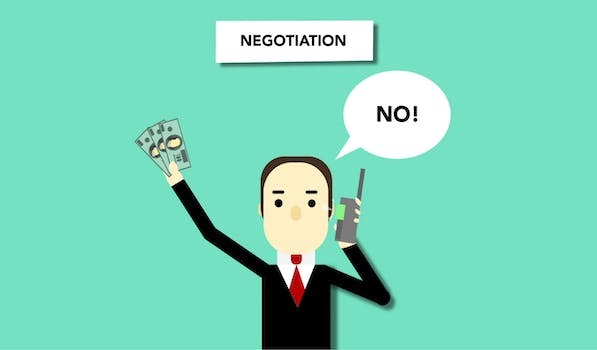How To Start A Business During A Recession
“Turning economic downturns into entrepreneurial opportunities.”
Introduction
Starting a business during a recession can be a daunting task, but it is not impossible. In fact, some of the most successful businesses were started during economic downturns. It requires careful planning, a solid business idea, and a willingness to take risks. In this article, we will discuss some tips on how to start a business during a recession.
Identifying Profitable Niches During a Recession
Starting a business during a recession may seem like a daunting task, but it can also be a great opportunity to identify profitable niches. In times of economic uncertainty, people’s spending habits change, and new needs arise. As an entrepreneur, it’s essential to keep an eye on these changes and adapt your business accordingly.
One of the first steps in identifying profitable niches during a recession is to research the market thoroughly. Look for areas where demand is high, and supply is low. For example, during a recession, people tend to cut back on luxury items and focus on essential goods and services. This could mean that there is a high demand for affordable, high-quality products that meet basic needs.
Another way to identify profitable niches is to look for gaps in the market. Are there any products or services that are currently unavailable or underserved? For example, if you notice that there are no local businesses offering affordable home cleaning services, this could be an opportunity to start a cleaning business that caters to budget-conscious consumers.
It’s also important to consider the long-term viability of your business idea. Will the niche you’ve identified still be profitable once the economy recovers? Look for areas where demand is likely to remain high even after the recession ends. For example, if you’re considering starting a business that caters to seniors, this could be a wise investment as the aging population is expected to continue growing in the coming years.
Once you’ve identified a profitable niche, it’s time to start developing your business plan. This should include a detailed analysis of your target market, your competition, and your unique selling proposition. What sets your business apart from others in the same niche? How will you reach your target audience, and what marketing strategies will you use?
It’s also important to consider the financial aspects of starting a business during a recession. You may need to secure funding from investors or lenders, so be prepared to present a solid business plan that demonstrates the potential for profitability. You may also need to be creative in finding ways to cut costs and operate efficiently, such as outsourcing certain tasks or using technology to streamline operations.
Finally, don’t forget to seek out advice and support from other entrepreneurs and business professionals. Joining a business networking group or seeking out a mentor can provide valuable insights and guidance as you navigate the challenges of starting a business during a recession.
In conclusion, starting a business during a recession can be a challenging but rewarding experience. By identifying profitable niches, developing a solid business plan, and seeking out support from others, you can increase your chances of success. Remember to stay flexible and adaptable as the economy changes, and always keep your customers’ needs at the forefront of your business strategy. With hard work and determination, you can build a thriving business even in the toughest of economic times.
Creating a Lean Business Plan for Tough Economic Times

Starting a business during a recession can be a daunting task, but it is not impossible. In fact, many successful businesses were started during tough economic times. The key is to create a lean business plan that can weather the storm and adapt to changing market conditions.
The first step in creating a lean business plan is to focus on your core business idea. What problem are you solving? Who is your target market? What makes your product or service unique? These are all questions that you need to answer before you can move forward.
Once you have a clear understanding of your core business idea, it is time to start thinking about your business model. How will you generate revenue? Will you sell products or services? Will you charge a subscription fee or a one-time fee? These are all important questions that you need to answer before you can start building your business.
Next, you need to think about your marketing strategy. How will you reach your target market? Will you use social media, email marketing, or traditional advertising? It is important to have a clear understanding of your marketing strategy before you launch your business.
Another important aspect of a lean business plan is your financial projections. How much money do you need to start your business? How much revenue do you expect to generate in the first year? What are your expenses? It is important to have a clear understanding of your financials before you launch your business.
One of the benefits of starting a business during a recession is that you can often find great deals on office space, equipment, and supplies. Take advantage of these opportunities to keep your costs low and maximize your profits.
It is also important to be flexible and adaptable during tough economic times. Your business plan may need to change as market conditions change. Be prepared to pivot and adjust your strategy as needed.
Finally, it is important to surround yourself with a strong team. You cannot do everything on your own. Hire employees or contractors who have the skills and experience that you need to succeed. Build a network of advisors and mentors who can provide guidance and support as you navigate the challenges of starting a business during a recession.
In conclusion, starting a business during a recession is not easy, but it is possible. By creating a lean business plan, focusing on your core business idea, and being flexible and adaptable, you can build a successful business that can weather the storm and thrive in tough economic times.
Marketing Strategies for Launching a Business During a Recession
Starting a business during a recession can be a daunting task, but it is not impossible. In fact, some of the most successful businesses were started during tough economic times. The key is to have a solid marketing strategy in place that will help you launch your business successfully.
The first step in creating a marketing strategy is to identify your target audience. Who are the people that you want to reach with your product or service? What are their needs and wants? Once you have a clear understanding of your target audience, you can begin to develop a marketing plan that will resonate with them.
One effective marketing strategy for launching a business during a recession is to focus on providing value to your customers. This means offering high-quality products or services at a reasonable price. You can also differentiate yourself from your competitors by offering unique features or benefits that your target audience will appreciate.
Another important aspect of your marketing strategy is to establish a strong online presence. This includes creating a website that is easy to navigate and provides valuable information about your business. You should also consider using social media platforms to connect with your target audience and build a following.
In addition to online marketing, you should also consider traditional marketing methods such as print advertising, direct mail, and networking events. These methods can be effective in reaching potential customers who may not be active online.
One of the most important things to remember when launching a business during a recession is to be flexible. You may need to adjust your marketing strategy as economic conditions change. This could mean shifting your focus to a different target audience or adjusting your pricing strategy.
It is also important to be patient and persistent. Building a successful business takes time and effort, and there may be setbacks along the way. However, if you stay focused on your goals and continue to work hard, you can overcome any obstacles and achieve success.
In conclusion, launching a business during a recession requires a solid marketing strategy that focuses on providing value to your target audience. This includes establishing a strong online presence, using traditional marketing methods, and being flexible and persistent in the face of economic challenges. With the right approach, you can successfully launch and grow your business, even during tough economic times.
Building a Strong Online Presence on a Tight Budget
Starting a business during a recession can be a daunting task, but it is not impossible. In fact, many successful businesses were started during tough economic times. One of the keys to success is building a strong online presence, even if you are on a tight budget. Here are some tips to help you get started.
First, you need to create a website. This is your online storefront and it is essential for any business. There are many website builders available that are affordable and easy to use. You can also hire a web designer if you have a larger budget. Make sure your website is user-friendly and visually appealing. It should also be optimized for search engines so that potential customers can find you easily.
Next, you need to create social media accounts. Social media is a powerful tool for businesses, especially during a recession when people are spending more time online. Choose the platforms that are most relevant to your business and target audience. For example, if you are selling products, Instagram and Facebook are great options. If you are offering professional services, LinkedIn is a good choice. Make sure your profiles are complete and consistent with your brand.
Once you have your website and social media accounts set up, you need to create content. This can include blog posts, videos, infographics, and more. The key is to provide value to your audience. Share your expertise, answer common questions, and provide helpful tips. This will help establish you as a thought leader in your industry and build trust with potential customers.
Another way to build your online presence is through email marketing. This is a cost-effective way to reach your target audience directly. You can use email to promote your products or services, share your latest blog post, or offer exclusive discounts. Make sure your emails are personalized and relevant to your subscribers.
Finally, you need to track your results. Use analytics tools to measure your website traffic, social media engagement, and email open rates. This will help you understand what is working and what needs improvement. Use this information to adjust your strategy and optimize your online presence.
In conclusion, building a strong online presence is essential for any business, especially during a recession. By creating a website, social media accounts, and valuable content, you can establish yourself as a thought leader in your industry and build trust with potential customers. Email marketing and analytics tools can help you track your results and optimize your strategy. With these tips, you can start a successful business even in tough economic times.
Navigating Legal and Financial Challenges When Starting a Business in a Recession
Starting a business during a recession can be a daunting task, but it is not impossible. In fact, some of the most successful businesses were started during tough economic times. However, it is important to navigate the legal and financial challenges that come with starting a business in a recession.
First and foremost, it is important to have a solid business plan. This plan should outline your goals, target market, competition, and financial projections. It is important to be realistic in your projections and to have a plan in place for how you will handle any unexpected challenges that may arise.
Once you have your business plan in place, it is important to consider the legal aspects of starting a business. This includes registering your business with the appropriate government agencies, obtaining any necessary licenses and permits, and ensuring that you are in compliance with all applicable laws and regulations.
One of the biggest financial challenges of starting a business during a recession is securing funding. Banks and other traditional lenders may be hesitant to lend money during tough economic times, so it is important to explore alternative funding options. This may include seeking out investors, crowdfunding, or applying for government grants.
Another important financial consideration is managing your cash flow. During a recession, it is important to be conservative with your spending and to have a plan in place for how you will manage your cash flow. This may include negotiating payment terms with suppliers, offering discounts for early payment, or seeking out alternative sources of revenue.
It is also important to consider the impact that a recession may have on your target market. During tough economic times, consumers may be more hesitant to spend money, so it is important to have a plan in place for how you will market your business and attract customers. This may include offering discounts or promotions, targeting a niche market, or focusing on providing exceptional customer service.
Finally, it is important to be flexible and adaptable. A recession can be unpredictable, so it is important to be prepared to pivot your business strategy if necessary. This may include exploring new revenue streams, adjusting your pricing strategy, or expanding your target market.
Starting a business during a recession may seem daunting, but with the right planning and preparation, it is possible to succeed. By navigating the legal and financial challenges, having a solid business plan, and being flexible and adaptable, you can position your business for success even in tough economic times.
Conclusion
Starting a business during a recession can be challenging, but it is not impossible. It requires careful planning, a solid business idea, and a willingness to adapt to changing market conditions. Entrepreneurs should focus on identifying opportunities in the market, developing a strong value proposition, and building a lean and efficient operation. By following these steps, entrepreneurs can increase their chances of success and thrive in a challenging economic environment.





